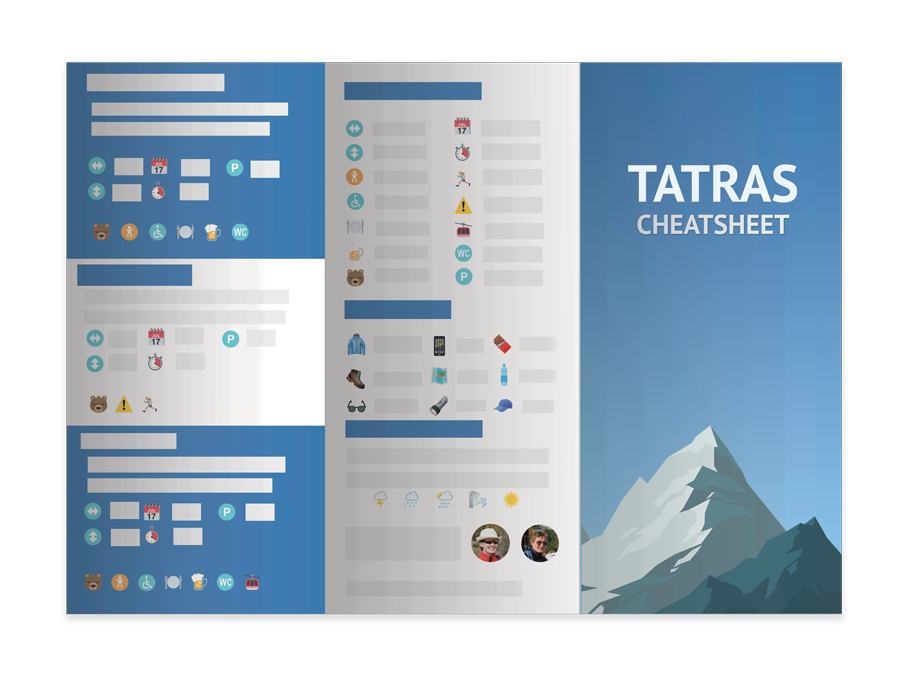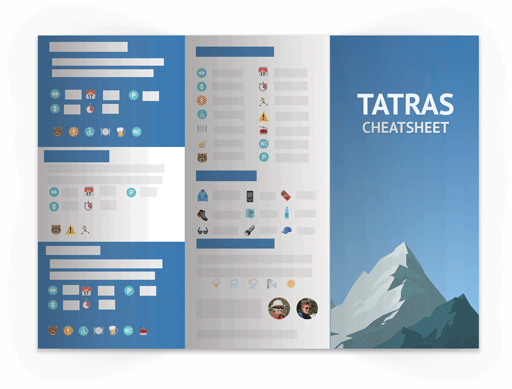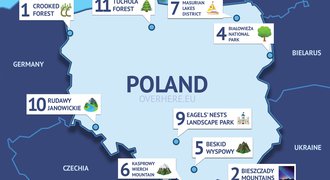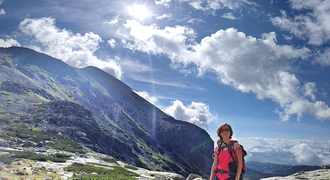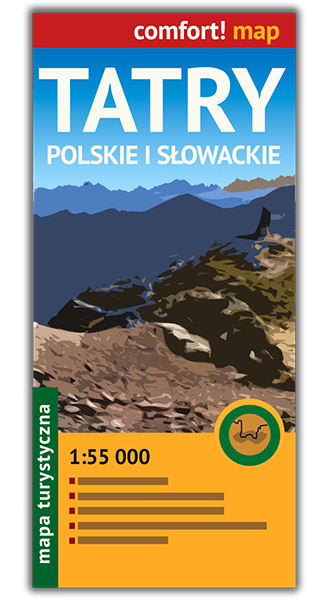"
The mind is its own place, and in itself can make a heaven of hell, a hell of heaven.
"
― John Milton, Paradise Lost
I’ve recently been struggling with some compulsive thoughts which were getting on my nerves. And they were very unpredictable too. Nasty, unnerving thoughts have been popping out in my mind while cooking, driving a car, taking a shower, reading a book… Damn, I was fed up with them!
Well, I have to admit I’ve been having such thoughts for my whole life, but recently they have become far too annoying and decreased significantly the quality of my life.
I’ve decided it’s high time to “clean” my mind. Get some rest. Make space to just simply be. Be in reality, which all in all wasn't so hostile.
So I did a lot of reading. They were books about hypersensitivity by Elaine Aron and Sand Ilse. And also Eckhart Tolle's works. I read quite a lot of online articles about how to create inner peace. I listened to countless YouTube videos.
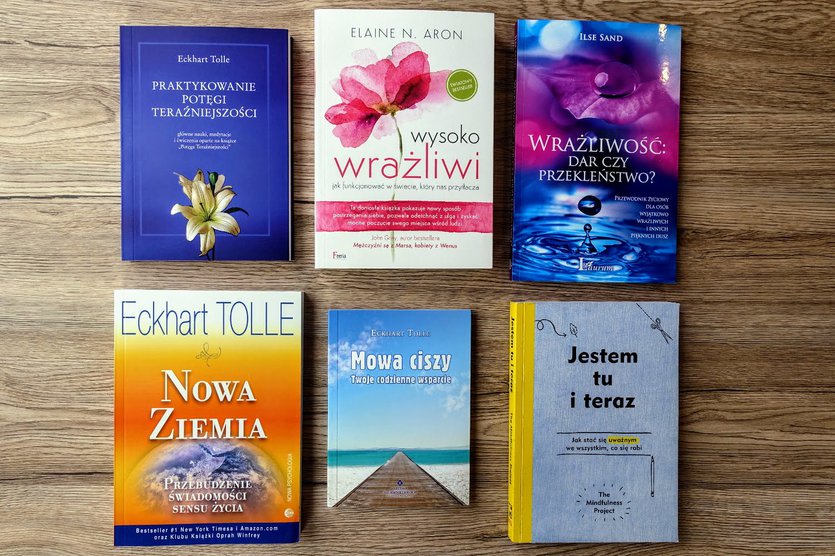
And things have started to get better. Very slowly, but they have.
I’m aware this is a
long process. Working with your mind is actually a never-ending story. I know I’ve still loads of things to improve.
Systematic work with our thoughts is often a challenge, but I think it’s worth it. It gives the most important things in life - health and peace.
I try to remind myself every day, as often as possible that:
→ The past is our perception of what happened (fiction number 1).
→ The future is our perception of what will happen or what needs to happen (fiction number 2).
We create both of them NOW.
Brooding over the past or the future means living in a fictional world of our own perceptions and beliefs. Regardless of whether they’re positive or negative, we always lose something far more valuable – real life which is happening NOW.
Living in the past or in the future is a disagreement with reality, an escape from life… and ourselves. Avoidance of the present moment distorts our life.
Escape into the past
In the area called “past”, besides nice memories, there are also numerous sources of our suffering.
For example, we made a “terrible mistake” which caused us to feel shame or lose something valuable. Each time we remind ourselves about it, we suffer again. Miguel Ruiz wrote that a human is the only creature which punishes itself a thousand times for the same slip-up.
In fact, the source of our actual pain isn’t our loss in the past, but our own perception of it, a “wonderful memory” powered by nonconformity with the change which happened.
Let’s think about the “big chance” which slipped through our fingers. Imagine that after many years of trying, we finally choose lucky numbers in the lottery, but we forget to register the coupon. We look at the ill-fated coupon and what do we feel? We lost something which we never had, but it hurts like hell.
In fact, what actually hurts us is… working of our own minds.
Let’s take now an example of the “real” past. We see a man who made a “stupid mistake” and had to split up with the “love of his life”. Every time he thinks about it, he suffers. He often imagines how their life would look like, how wonderful it would be to walk together on the beach, plan travels, bring up kids, and get old together. And it all fell apart! Because of one stupid mistake.
The more he thinks about it, the more it hurts. This man doesn’t even notice that the picture he created becomes more and more fictional and romanticized. There are no fights, tensions, or dithers. If it weren’t for his past, he would only experience good things…
In fact, the cause of his suffering is something else.
If he didn’t move out of his real life into his intimate museum, if he stopped feeding his memories, his pain would go away after some time and in this man’s life there would be space for new love, new relationships, new life.
It’s his focus on the past which makes his present life so miserable and lonely.
Let’s think twice if such sacrifice is reasonable. How often do we devote now to the past?

What about nice memories?
Well, even pleasant pictures from the past can become an anchor and slow down our development.
Each woman whose husband remembers how good it was while living with his mom knows that perfectly. Each man who hears from his wife that at the beginning he used to be different knows a lot about that.
In comparison with the romanticized past, each now looks poor. Especially that people who focus on the past, rarely have time and energy to take care of the present.
Everything changes – you, me, relationships, love, jobs. Even memories.
What’s worth noticing is also the fact that a lot of us not only return constantly to our memories but develop a more advanced form of living in the past. For example: what would happen if I accepted the other job two years ago? Where would I be if I moved to Australia in 2005? If I bought shares in another company? If I didn’t go out that night? If I didn’t eat that old fish?
The caliber of those matters may be different, but the result is always the same. We go forward with our heads turned back. There’s no way we won’t trip over something again.
Expeditions into the future
The past might be a source of our unhappiness and in the future, we may locate our anxieties and fears.
We may wonder what would happen if an enormous asteroid hit the Earth in 2030. Would anyone survive the explosion? Too abstract?
OK. What pension would I receive? Would it be enough to make the ends meet, and travel too? Where would my kids work (they chose cultural studies)? What would happen with my bank loan? My father had cancer, would I have it too?
The number of questions which our mind can generate exceeds the computing power of NASA machines.
And every question, especially that worrying one, uses energy, invisible muscle twitch, nervous cell contraction, and short breath.
The majority of what we’re afraid of will never happen, but we constantly plan, secure ourselves and plan again. We create plan B, plan C..., and plan Z.
By the way, this was so me. I used to imagine every day which countries I wanted to travel to – Norway, Romania, Croatia, Greece, Spain, Iceland… The list went on and on, but I was actually too lazy to sit down and prepare the budget.
Obviously, we need to plan things from time to time, but then we have to get back to the now and get things done.
So, when we’re too busy planning, there may not be enough time to fulfil our plans (especially since we use a lot of our energy to recall the past).
If we keep thinking about the past, we move through life with our heads turned back.
Analogically, if we focus on the future, we live with a telescope added to our faces. We see a lot of places which we’ll never visit and a lot of vague details whose meanings we can only guess. On our way, we often stumble, but we don’t trip over things which will happen in 5 years, but over stuff which is happening now.
Besides, even if we reach our dream places (or those unwanted ones), they may turn out to be completely different from what we expected/imagined. Failure is not that big, happiness is not that great.
Where do we tend to look most often?
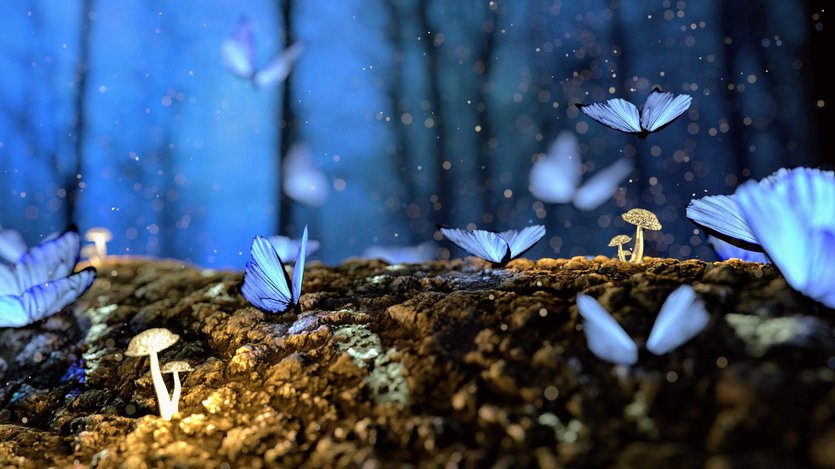
Now you ask: what about our dreams?
Well, similar to pleasant memories, they are kind of a threat to the present moment and to our lives. True, it’s nice and healthy to dream before falling asleep.
But how many people live in their dreams, trusting in their better self and better world? How many stopped working on what they actually have? A dream is like spice or supplement – it will never replace a meal.
There’s not one person in this world who would really live even a minute in the past or in the future.
Past and future are only fictional trips of our mind, stories about non-existing worlds. Each trip like this takes up our time.
Of course, flashbacks can be helpful, but only if they’re short and have something valuable for the present moment.
So, here’s some advice for you and me.
Let’s learn to constantly return to the present time.
Jump into the past for information or a sensible conclusion and get back soon to enjoy the current event. Quick look into “the future”, into our own expectation or direction, and return.
The more we spend at home called “now”, the less artificial projections in our lives.
When I catch myself brooding in the past or worrying about the future, I like to remind myself that:
→ Thoughts are only creations of our minds. They’re not the reflection of reality, very often they don’t have anything in common with reality. They are often in denial/contradiction of reality.
→ If we don’t pay attention to the thought which triggered the emotion, the emotion will fade very quickly.
→ The majority of negative scenarios we create are false, it will never happen.
→ Being aware that thoughts are subjective products of our mind, we can downplay them, don’t focus on them and don’t create dialogue with them.
→ Thoughts live on our attention. The more attention we give them, the stronger they become.
→ We can focus only on one thought at a time.
→ Thoughts are often elusive and transient. If we don’t contemplate or analyze them, they will go away quickly.
→ The longer we busy ourselves with a thought, the longer it will stay in our mind.
→ The longer we focus on a worrying thought, the more similar thoughts will appear. It’s called thought cascade and it can bring about physical symptoms.
→ It’s good to be aware of thoughts that our mind creates, but let’s not evaluate them or analyze them. Let’s avoid internal arguments and fierce dialogues.
→ Let’s observe our thoughts with distance.
→ It’s better not to focus on changing the thoughts, but rather on changing the whole process of thought's creation.
→ Thoughts and emotions influence each other. Negative thoughts inspire negative emotions.
→ Understanding thought processes (they’re not true, they’re just short-lasting creations of our mind) helps with getting rid of bothersome thoughts.
→ Thoughts observation with a positive attitude (kindness and patience) helps a lot. We treat thoughts like playful young children.
→ We remember that thoughts come and go. We let them drift away.
I get rid of the past baggage – sorrow, claims, memories.
I free myself from the future baggage – expectations, plans, and demands.
I create a free space in myself to simply be.



